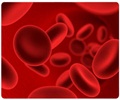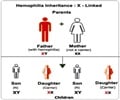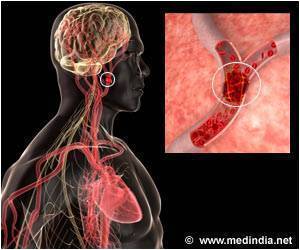Two snapshots of a receptor that are of critical importance for blood coagulation have been taken by an international team of researchers.
Two "snapshots" of a receptor that are of critical importance for blood coagulation have been taken by an international team of researchers in cooperation with the University of Bonn. The scientists now hope to be able to develop novel drugs using these results. These include tailor-made blood-thinning substances for heart attack and stroke patients whose effects are reversible and better controllable than those of current therapies. The researchers are presenting their results in the renowned journal "
Nature."
After a cut to the finger, blood platelets come into play: they adhere to one another and thus close the wound. The adenosine diphosphate receptor P2Y12, found on the surface of platelets, plays an important role in this essential mechanism. It belongs to the family of so-called G-protein-coupled receptors (GPCR); two American researchers were awarded the Nobel prize in 2012 for research involving these receptors. "If adenosine diphosphate (ADP) binds to the receptor, signals are transmitted to the inside of the cell which will finally lead to platelet aggregation," said Prof. Dr. Christa Müller from the Pharma-Center of the University of Bonn. In this process, the receptor and its binding partner ADP fit together precisely like a lock and a key. "The ADP can be thought of as a key which unlocks the receptor (the "lock") to allow the signal for platelet aggregation to pass," explains the pharmacist.
Better control through a reversible blockade
However, platelet aggregation is sometimes undesired. For example, in the case of a heart attack or a stroke aggregated platelets occlude important blood vessels. As a preventive medicine blood thinners are generally prescribed to such patients, in order to prohibit further damage due to occluded blood vessels. Pills containing the drug clopidogrel, that must be initially activated in the liver, are of great importance, since it blocks the P2Y12 receptor and thus prevents platelet aggregation. Since clopidogrel is an irreversible inhibitor, only with the formation of new platelets after approximately one to two weeks, this effect subsides in the patients.
Source-Eurekalert

 MEDINDIA
MEDINDIA




 Email
Email










